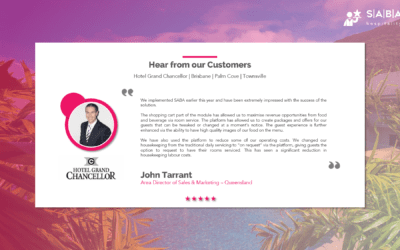Written by Oscar Guijarro from Inside Asian Gaming
Excuse me, I am an artificial intelligence.
That is not actually true, for the time being at least. I am just an ordinary human man writing this article, but pretty soon you may find yourself reading stories created by machines or being greeted by machines at integrated resorts and hotels all over the world as artificial intelligence (AI) gains a grip in the leisure and entertainment industry.
At the moment, those AIs working in the industry are mainly taking on activities behind the scenes. They mostly help security and management staff deal with tasks where electronic processors are more useful than neurons.
On gaming floors they are already being used to track irregular behavior at the tables, casting warning signs so such activity can be properly probed.
And of course, there is marketing.
“You can really tailor make the campaign that is most attractive for each particular segment,” said Stefan Renziehausen, Executive Director of Operations for SABA Hospitality Technology Solutions, a provider of AIs services to the industry.
“That is a big thing, especially for integrated resorts in Macau … how to attract people who have been here before to come again and how to develop new markets.”
While AI functions are currently focused on such “backend” areas of the industry, its use in tasks where interaction with humans is needed is still lagging behind.
However, this situation is poised to change during the next few years as AIs grow ever closer to mimicking human behaviours.
In May last year, Google unveiled its Duplex technology at a conference of 7,000 attendees. Google Duplex is an AI that makes phone calls on your behalf to make reservations. It is still in its early stages of development, but during the event Duplex managed to make a phone reservation with a hair salon using an eerily accurate human style. The similarity to human behavior was so close that Google said Duplex would let its conversational counterparts know they were talking with an AI.
This kind of AI is known as a chatbot, and you can expect to interact with them in many areas of an integrated resort in future, such as when calling room service to book a restaurant, spa or any other amenity, or simply asking for an extra pillow.
Aside from streamlining these services, chatbots promise to overcome the language barrier, opening the IR market to international customers reluctant to travel because they are not confident enough to converse with the locals.
The perks of using this technology are potentially enormous, however, the most notable of all could be a decrease in employment pressure. For gaming enclaves with a limited labor offering like Macau or even future gaming hubs such as Japan, this could help solve a range of HR problems. The most extreme example of this right now is Alibaba Future Hotel in Hangzhou, China, where most services are provided by machines.
Nonetheless, Alexander Wessels, Executive Director of Accounts and Partnerships of SABA, is positive that AIs are here just to help humans make better decisions, not to replace them in the hospitality or gaming sectors.
“There’s always this emotional connection you have with the dealer,” he says. “That’s why there are so many dealers out there and that’s why they are trained how to be polite. But in terms of a robot you can actually never be sure.”
Thanks to AIs, the traditional look and feel approach of IRs is gradually being complemented by a new sound and feel approach. But, in the end, the success of artificial intelligences in the sector will depend on the whims of the customer.





0 Comments